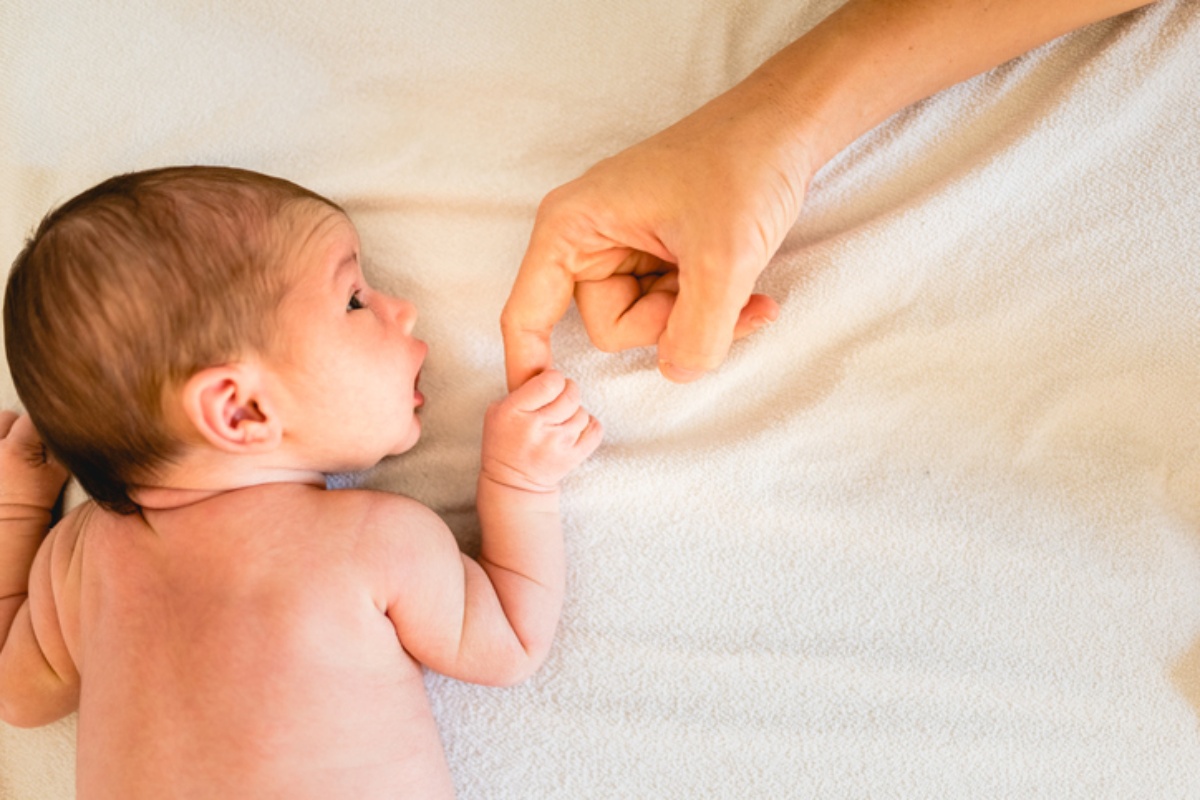Babies learn by looking at human faces, so many parents and childhood experts are concerned about the developmental consequences of widespread face-masking during the pandemic.
A new study by researchers at the University of California, Davis, allays those concerns, finding that 6- to 9-month-old babies can form memories of masked faces and recognize those faces when unmasked. Michaela DeBolt, a doctoral candidate in cognitive psychology, and Lisa Oakes, a professor in the Department of Psychology and at the Center for Mind and Brain, used eye tracking to study how masks influence infants’ facial recognition.
Advertisement
In the study, 58 babies, each seated on a parent’s lap or in a highchair, were shown pairs of masked and unmasked women’s faces on a computer screen, while cameras recorded where they looked. Because babies linger longer over unfamiliar images, the researchers could derive which faces they recognized, DeBolt said.
The findings appear in a paper published in the January/February special issue of the journal Infancy, which focused on the impact of Covid-19 on infant development.
The testing took place at Oakes’ Infant Cognition Lab at the Center for Mind and Brain in Davis, California, from late December 2021 to late March 2022, during a statewide mask mandate and the arrival of the coronavirus omicron variant.
“When babies learned a masked face, and then they saw that face again unmasked, they recognized it,” DeBolt said.
However, when the order was reversed, babies did not show strong recognition of masked faces that they first saw unmasked. DeBolt said that was similar to her own experience of not instantly recognizing a friend who was wearing a face mask.
Learning faces is central to how babies learn to talk, perceive emotions, develop relationships with their caregivers and explore their environment, Oakes said, adding, “So people were very worried about face masks and the effect they would have on how infants are learning about human faces.”
Oakes, an expert on cognitive development in infancy, said the study highlighted a remarkable ability of babies to adapt, adding, “I think that it should be very reassuring to parents in general,”
“Babies all over the world develop and thrive,” she said, adding, “There are so many variations in babies’ everyday lived experience,” she added. “As long as they are well cared for and fed and they get love and attention, they thrive. We can get into a mode where we think the way we do things is the best way to do things and that anything different is going to be a problem. And that’s clearly not the case.”











